Solar_Installation_Tips_and_Tricks.pdf
Properly Calculate Energy Needs
- Don't underestimate how much power is being consumed
- Add a safety factor to calculations
- Battery backup power should be taken into consideration
- Off grid scenarios will need backup to function at night or during times of cloud cover
- Have enough backup in case of worst case scenario
When in Doubt, Go Big
- Plan a system that is oversized to avoid inadequate energy needs
- Allows for errors when planning a solar system
Transcript
[0m:4s] Hi I'm Josh Bloom, welcome to another video in the RSP Supply education series. If you find that these videos are helpful to you, it certainly helps us out if you could give us a big thumbs up and subscribe to our channel.
[0m:16s] In today's video, we are going to talk about solar power.
[0m:20s] If you have not already seen our other video in which we discuss the basics of setting up a solar powered electrical system, please reference that video as some of the topics we will discuss today will make more sense if you have a better understanding of a basic solar setup.
[0m:39s] For the purpose of this video, we want to talk about a few of the different tips that we have found to be helpful when planning for a solar powered system.
[0m:48s] Keep in mind the things we will discuss today are just a few methods. We have found to be helpful, but there are many different things that should be considered when installing one of these types of systems.
[1m:0s] With that said, let's get started.
[1m:3s] One of the first things you need to do when setting up any solar system is to properly calculate your energy needs.
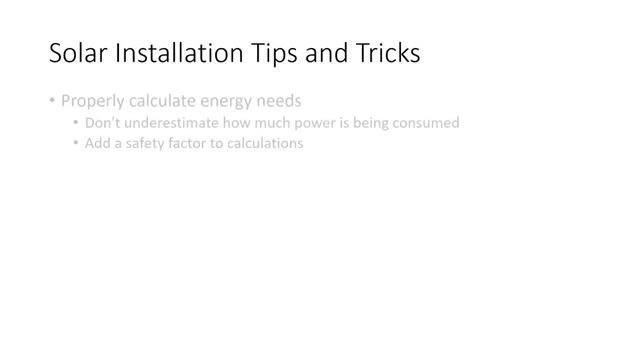
[1m:11s] For the purpose of these videos, we tend to reference more industrial situations,
[1m:16s] but this principle can apply to any type of situation.
[1m:20s] It is important to make sure that you do not underestimate how much power is actually being consumed.
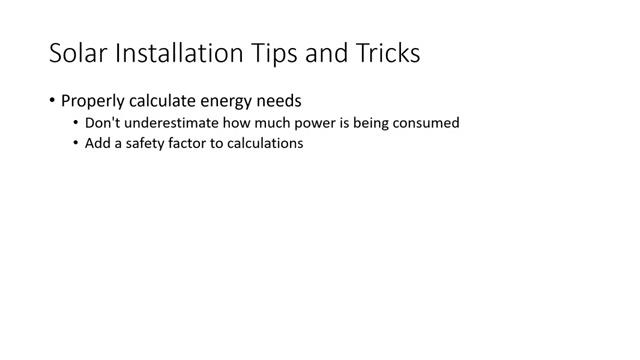
[1m:27s] This is especially important for any sites that are completely off grid.
[1m:32s] A common industrial situation would be a remote site like a water tank that is monitoring various values at a given location.
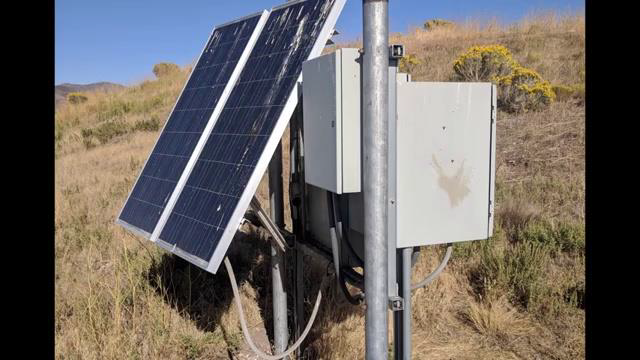
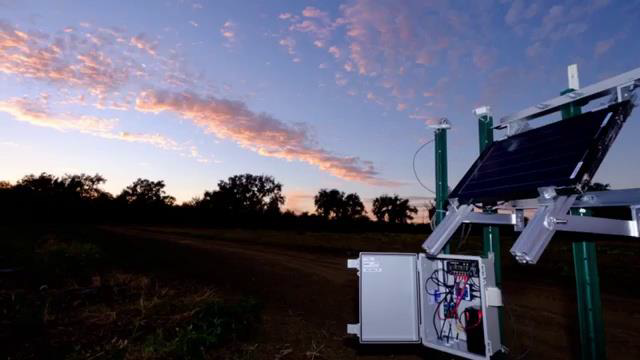
[1m:41s] It is not uncommon to see these tanks located in areas that there is no access to utility power.
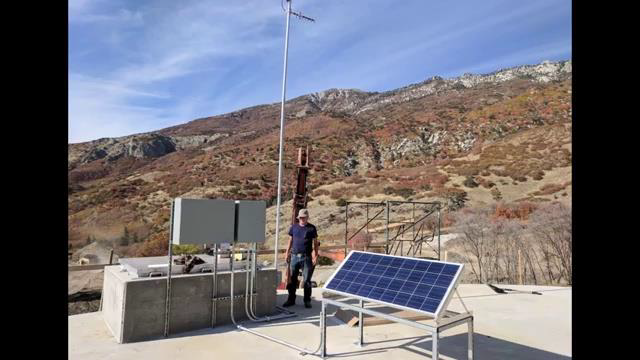
[1m:48s] In these types of situations, it is critical to make sure that you have calculated your total energy consumption properly. Otherwise you run the risk of not being able to provide enough power, thus possibly causing intermittent shutdown of equipment or even possibly damaging sensitive hardware.
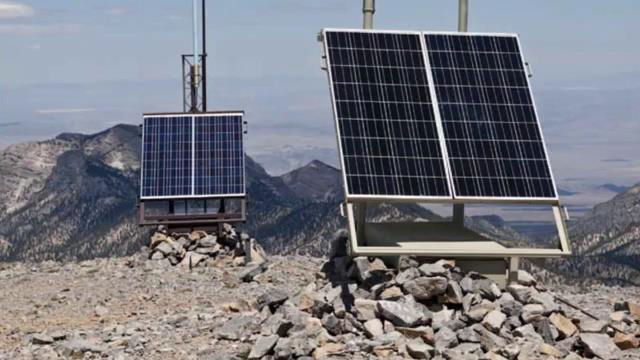
[2m:8s] So make sure to take time up front and properly calculate the amount of power that is required, and add a safety factor to your calculation in order to provide excess power in case things change in the future.
[2m:22s] Another important thing to consider when setting up one of these systems is backup power.
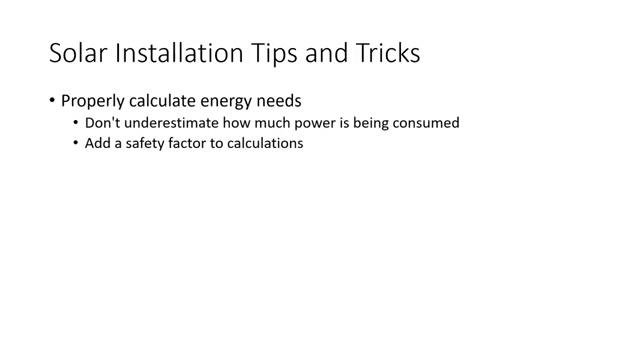
[2m:28s] More specifically battery backup.
[2m:31s] Because solar panels only generate energy when they are in direct sunlight,
[2m:36s] we know that when it is dark outside,
[2m:39s] we have no power coming into our system.
[2m:42s] It is because of this fact it is important to consider a battery backup system. If you are completely off grid, like in the example we have already mentioned and need power at night, battery backup is absolutely necessary to keep things running.
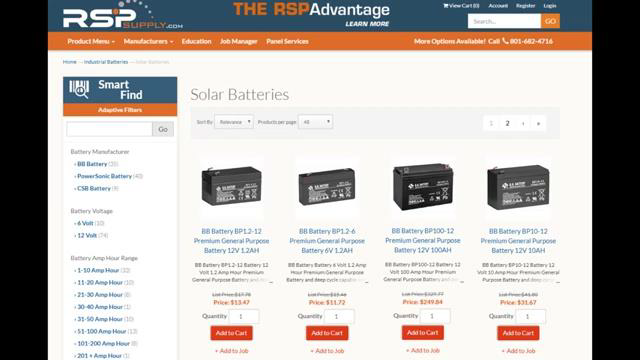
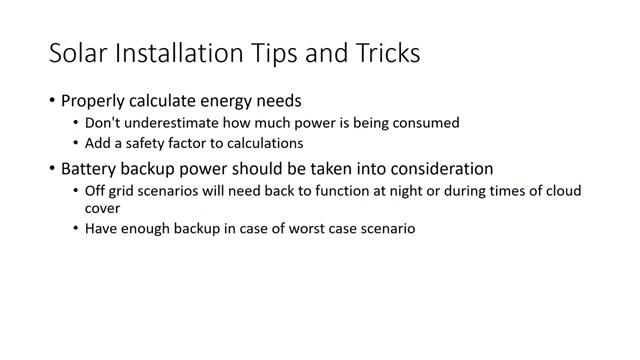
[2m:59s] It is also very important to make sure that we have enough battery backup in the event of a worse case scenario.
[3m:7s] For instance, in wintertime, the daylight hours are drastically reduced. Also, it is important to plan for inclement weather when the sun may be shielded by cloud cover, and also, the possibility that the solar panels may be covered in snow, thus not producing any power, even if it's sunny outside.
[3m:29s] All of these factors should be taken into consideration when sizing your backup system.
[3m:35s] Make sure again to add a safety factor into your calculation to ensure that you have more than enough power than is actually needed.
[3m:44s] The last tip is this:
[3m:46s] when in doubt,
[3m:48s] go big.
[3m:49s] Any time you are planning a solar system and determining things like power requirements, the amount of panels needed, as well as how large to size your battery backup system, it is always better to oversize your system to ensure that you have the power that is needed for your specific situation.
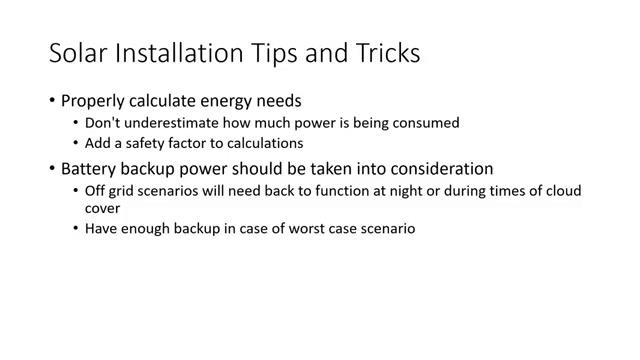
[4m:10s] There is nothing worse than taking special care to install a great system only to find out that it is not adequate in meeting your energy needs.
[4m:20s] As I had mentioned before by adding a safety factor to all of these different calculations, you should be able to properly size the system for your needs, while ensuring that you have not underestimated any energy consumption requirements. So again, when in doubt, go big.
[4m:39s] By following these three simple tips, hopefully you can be confident in knowing that your system will fit your needs now and well into the future.
[4m:50s] For a full line of industrial solar hardware and thousands of other products, please go to our website. For more information or other educational videos, go to RSPSupply.com, the Internet's top source for industrial hardware. Also, don't forget: like and subscribe.




